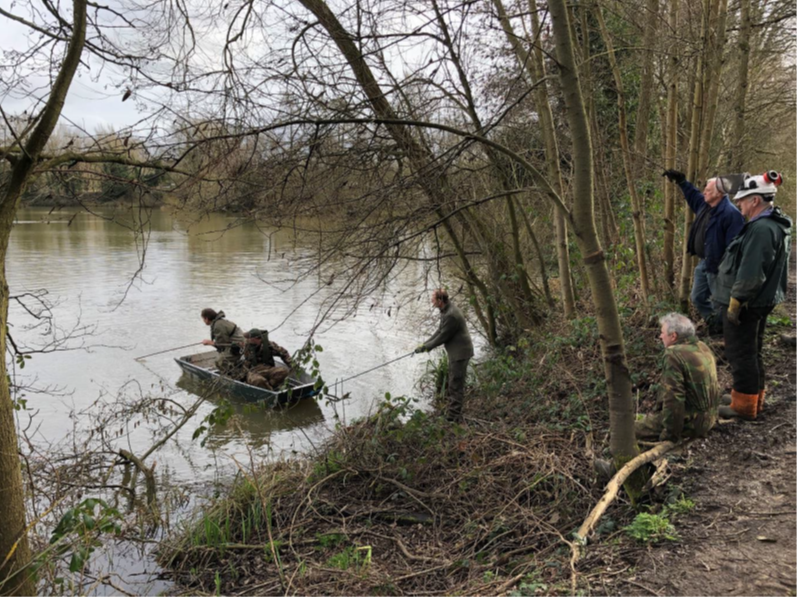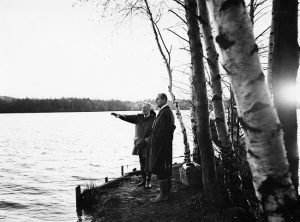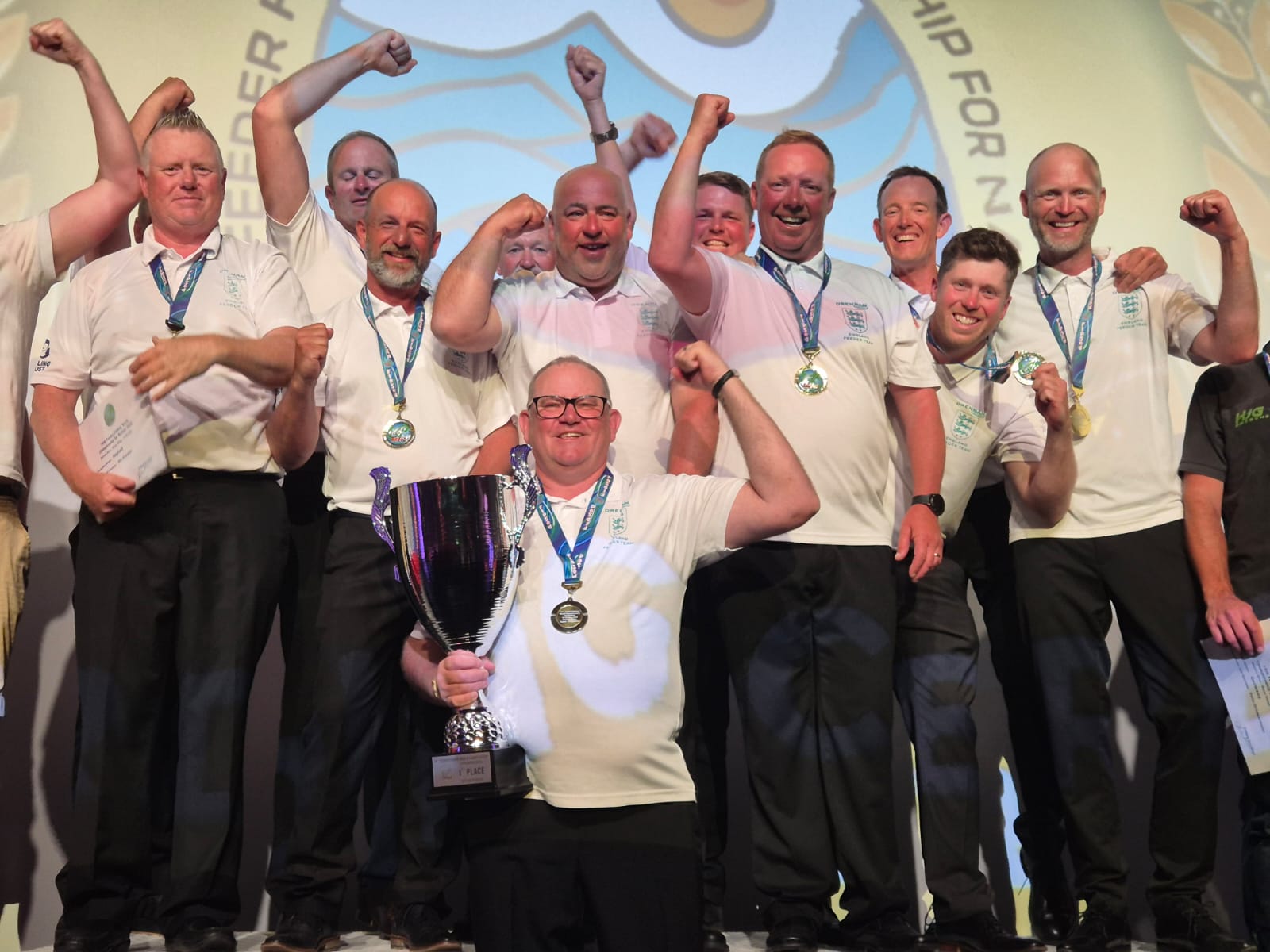
Campaigns
Wildlife groups back anglers in bid to save fishing at Sevenoaks Wildlife Reserve
Moves to ban fishing at four popular lakes in Kent’s Darent Valley have been met with strong opposition from an array of angling and wildlife groups.
Last week, the Kent Wildlife Trust (KWT) informed Bromley & District Angling Society (BDAS) that they wanted all angling to cease at Bradbourne Lakes on the Sevenoaks Wildlife Reserve with effect from March 15th, 2021.
Members of the Society have fished the water-filled gravel pits and the River Darent since 1948. They have improved and cared for the site for over 70 years turning it from barren holes in the ground to an ecologically diverse amenity rich in wildlife and habitat. BDAS members worked together in partnership with the local birdwatching community on habitat improvement and site management but have now been given two months’ notice to leave for no good reason.
This has prompted a strong response from not only angling’s national governing body – the Angling Trust and Fish Legal – but from groups representing bird watchers and beaver and otter conservation along with the former warden of the site. The eviction of this well respected and long-standing angling club is all the more surprising since it was announced by Kent Wildlife Trust on January 19th without waiting for the results of their public consultation seeking ‘local views on the future of the site’ which doesn’t end until February 7th.
In an email to BDAS, the CEO of Kent Wildlife Trust claims that fishing does not fit with their vision of a ‘Wilder Kent’. However, they are proposing a major development of the reserve including an enlarged visitor centre and the construction of an area for coach parking.
KWT states:
“At Sevenoaks our vision is for an abundance of dragonflies, caddisflies, and other aquatic animals making their homes in the bankside vegetation and in the varying styles of lakes and pools. In turn, this will provide food and shelter for a wide range of birds and new species such as otter and beaver.”
They provide no evidence to explain why angling is incompatible with any of these objectives which has triggered other wildlife groups to rally in support of finding a way forward to allow angling to continue on the site.
James Wallace, Chief Executive of the Beaver Trust, said:
“Angling, beavers and nature restoration are compatible. Native beavers, otters, fish, insects, birds and other wetland species co-evolved and lived in harmony for millennia in Britain. Beaver Trust helps stakeholders from anglers and farmers to birdwatchers and conservationists to make space for nature and people. We hope that exciting projects like the Sevenoaks Wildlife Reserve will find a compromise where different interest groups and activities, including angling, can be accommodated.”
Chris Couch, from Sevenoaks Birdwatchers Action Group, added:
“The angling club have been an asset to this reserve for 70 years, keeping their swims clear and allowing the general public to access the sides of the lakes, making sure that fish stocks are good, which in turn attracts wildlife like kingfishers, herons and grebes. They have also acted as wardens helping to make sure there are no unwelcome visitors that might cause trouble. Do the new heads of the Trust not know that fishermen, bird watchers and wildlife go hand in hand?”
Dave Webb, UK Wild Otter Trust Founder, said:
“UKWOT were dismayed to hear that fishing at this historic club lake was to be ended. We totally refute the idea that angling, otters, beavers and other wildlife are unable to coexist. We would therefore call upon the Kent Wildlife Trust to seriously reconsider their position concerning the proposed plans, and to allow anglers and others to enjoy and maintain this area for wildlife as they have previously.”
BDAS has enlisted the professional help of Angling Trust in their bid to save the fishing at Sevenoaks and a solicitors letter from Fish Legal has been sent to the KWT challenging their decision and pointing out that the Society holds a licence which runs to March 31st, 2024 and seeking discussions with KWT on a sensible way forward. It concludes:
“We have accordingly advised The Club that the purported termination of their licence is not effective. They will therefore be paying their rent on the next rent-day to KWT in accordance with the terms of their licence. It is their current intention to continue to fish at Bradbourne Lakes until 31 March 2024, however they would welcome a constructive discussion with you at any time bearing in mind the longer-term stated aims of KWT contained in your letter.”
In the meantime, the Angling Trust has begun mobilising high level support for the campaign to save fishing at Sevenoaks Wildlife Reserve and has already secured a commitment for the matter to be raised in Parliament.
Martin Salter, Head of Policy at the Angling Trust, said:
“In common with other wildlife and conservation groups we are disappointed at the absurd and high handed approach taken by the current management of Kent Wildlife Trust towards the people who have a track record of 70 years environmental stewardship of this wonderful site. Angling and wildlife conservation go hand in hand, as many other Wildlife Trusts who offer fishing on their sites have recognised. We are hopeful for an outbreak of common sense in Kent without us having to escalate this issue any further.”
Dennis Puttock, Secretary of BDAS, added:
“Our members are distressed and appalled by the treatment they have received from Kent Wildlife Trust after 70 years of nurturing and caring for this site. Their misguided anti-angling agenda is a slap in the face to our volunteers and to all the local families who value this peaceful oasis where generations of children have learnt to fish and to appreciate nature and the local wildlife.”

The Duke of Edinburgh on a visit to the lakes with former BDAS chairman Ken Wills
You might also like

Teaming up to halt spread of invasive floating pennywort

BLOG: Learning how to fish at Farnham Angling beginner…

BRONZE FOR ENGLAND VETERANS AS MASTERS AND DISABLED GO…

The Angling Mental Health Initiative’s Let’s Go Fishing events…

What to do if fish are gasping or spawning.…

WORLD CHAMPS GOLD FIRMLY IN THE SIGHTS OF ENGLAND…

We Fish as One supports Pride Month 2025

Sunglasses giant backs Angling Trust

Join in with the Check, Clean, Dry campaign this…

From TikTok to the classroom – Orchard School follows…

DRENNAN ENGLAND FEEDER TEAM WIN WORLD CHAMPS!

Family fishing at Aston Park Fisheries where have a…

Teaming up to halt spread of invasive floating pennywort

BLOG: Learning how to fish at Farnham Angling beginner…

BRONZE FOR ENGLAND VETERANS AS MASTERS AND DISABLED GO…

The Angling Mental Health Initiative’s Let’s Go Fishing events…

What to do if fish are gasping or spawning.…

WORLD CHAMPS GOLD FIRMLY IN THE SIGHTS OF ENGLAND…

We Fish as One supports Pride Month 2025

Sunglasses giant backs Angling Trust

Join in with the Check, Clean, Dry campaign this…

From TikTok to the classroom – Orchard School follows…

DRENNAN ENGLAND FEEDER TEAM WIN WORLD CHAMPS!

Family fishing at Aston Park Fisheries where have a…

Teaming up to halt spread of invasive floating pennywort

BLOG: Learning how to fish at Farnham Angling beginner…

BRONZE FOR ENGLAND VETERANS AS MASTERS AND DISABLED GO…

The Angling Mental Health Initiative’s Let’s Go Fishing events…

What to do if fish are gasping or spawning.…

WORLD CHAMPS GOLD FIRMLY IN THE SIGHTS OF ENGLAND…

We Fish as One supports Pride Month 2025

Sunglasses giant backs Angling Trust

Join in with the Check, Clean, Dry campaign this…

From TikTok to the classroom – Orchard School follows…

DRENNAN ENGLAND FEEDER TEAM WIN WORLD CHAMPS!









